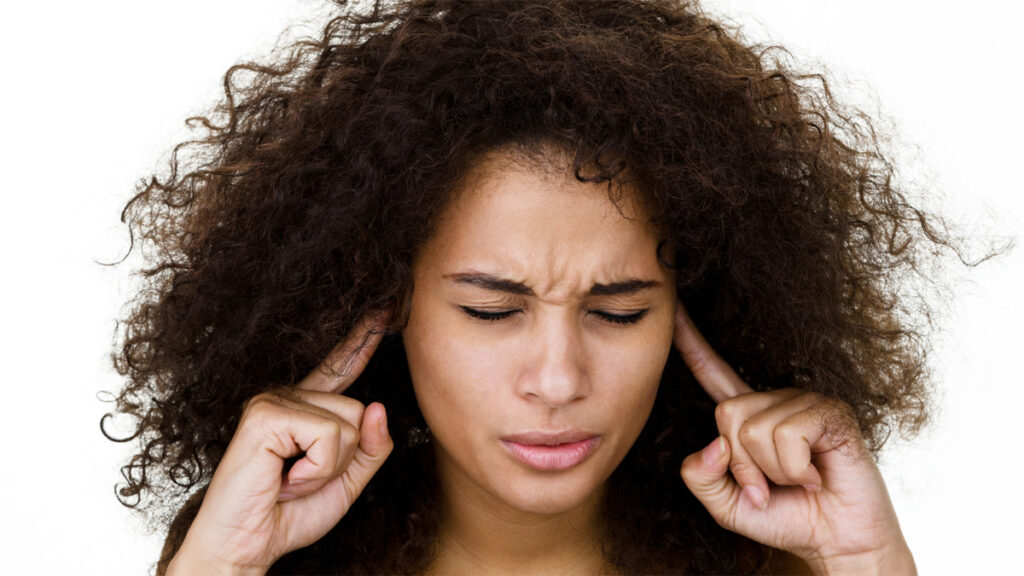Having clogged ears can be really uncomfortable and can lead to muffled sounds or straining to hear. In some cases your ear may clear itself pretty quickly, other times you can easily clear the clog with a home remedy, but sometimes medication is needed. If it persists, a trip to your local audiologist will be necessary. The rest of this article will discuss some of the common reasons for clogged ears, how to unclog them, and when it is important and necessary to see an audiologist.
Ways To Treat Clogged Ears
There are many different ways to treat clogged ears, but the key for correct treatment is to understand why and how your ear is clogged. If your inner ear is clogged, go to a doctor immediately. If it is your outer or middle ear, you may want to try a home remedy first, but if the clog persists, you should then see a doctor. Here are some of the simple things that you can try if your ear is clogged, but remember to see a doctor if these do not work quickly:
- Nasal Decongestants
- Oral Decongestants
- Yawning
- Chewing
- Blowing Your Nose
- Mineral Water
- Home Ear Irrigation Kit
- Warm Compress
- Valsalva Maneuver (Explained Later)
Dealing With A Clogged Middle Ear
The vast majority of the time, when your middle ear is clogged, it has to do with fluid inside your eustachian tube. Your eustachian tube connects your middle ear with your throat. Mucus and fluid flows from the ear through the tube where you swallow it. Sometimes, this process does not work and the fluid and mucus become trapped in the middle ear and cause your ear to clog. The two most common solutions to a clogged middle ear are as follows:
Valsalva Maneuver
The valsalva maneuver is a fancy name for popping your ears. To accomplish this, simply hold your nose, close your mouth, and blow. The pressure that you create by trying to force air out with no release point should be strong enough to unclog your ears. This is an effective trick to use when flying.
Nasal Spray Or Oral Decongestants
The next most common cause of a clogged middle ear is allergies or a sinus infection. If it turns into a sinus infection and a fever, see a doctor to get a prescription to clear it up. If it is normal seasonal or long-term allergies, then an OTC medication should clear it up quickly.
Dealing With A Clogged Outer Ear
A clogged outer ear is pretty common and is most often associated with earwax. The following are some easy ways to help take care of a clogged outer ear:
- Mineral Oil
One of the easiest things to do when your outer ear is clogged is to drip a couple of drops of either mineral oil or baby oil into the clogged ear. It is best if you warm the mineral water up a little first, use an eyedropper to put one to two drops in your ear, tilt your head for 15 seconds, and do this a few times every day for five days, or until the blockage gets better.
- Hydrogen Peroxide or Carbamide Peroxide Otic
You can also try Hydrogen Peroxide or Carbamide Peroxide Otic in the form of drops in your ear. These are a little more powerful cleaners than the mineral oil, but it can also be a little more dangerous if you do not properly dilute it with warm water first or if you leave it in your ear for too long. Follow the steps from the mineral water above.
- Over-the-Counter Ear Drops
While you have to go to a local grocery store and purchase them, this is the easiest option. Simply follow the directions on the box.
- Ear Irrigation
Ear irrigation begins after the process of softening the earwax, which is done with either OTC drops or mineral water, and works to remove the softened ear wax naturally. Your doctor is the best option for ear irrigation, but there are OTC measures that can be taken as well.
- Warm compress or steam
Sometimes all you need is a warm compress placed on your clogged ear or a hot shower with a lot of steam. The warm compress can draw out excess wax while the steam from a hot shower can enter your ear and help force the wax out.
Reasons Why Ears Get Clogged
There are many reasons and ways that your ears may become clogged. Everyone has experienced the feeling, even if for just a short time, of water, earwax, fluid buildup, or a foreign object being stuck in your ear causing it to clog up. The following are some of the reasons why:
- Eustachian tube blockage
As mentioned above, your eustachian tube connects your middle ear with your throat. Mucus and fluid flows from the ear through the tube where you swallow it. Sometimes, this process does not work and the fluid and mucus become trapped in the middle ear and cause your ear to clog. When your eustachian tube is clogged, the blockage usually accompanies an infection such as the common cold, the flu, or a sinus infection. Because of that, some of the common symptoms of a eustachian tube blockage include runny nose, sore throat, coughing, sneezing, etc. Swimming can also trigger an infection commonly known as “swimmer’s ear.” When your eustachian tubes are blocked, it is important to unblock them quickly or you could end up with a painful and annoying ear infection.
- Higher altitude
Some people experience clogged ears after scuba diving, flying, driving up a mountain, or other sudden altitude changes. A rapid change in air pressure outside of your body can actually cause the inside of your ears to feel clogged. Your eustachian tube is responsible for equalizing the pressure in your middle ear, but higher altitudes can make it difficult to equalize the pressure. This often goes away when you get back to a normal altitude, but if it lasts more than one or two days you should see a doctor.
- Earwax
Ear wax is your body’s way of keeping your ear clean and protecting your ear, but sometimes your body can make too much of it and it can become impacted causing your ear to feel stopped up. If you believe that earwax is the cause of your clogged ears, the best thing you could do is find a hearing healthcare professional to both diagnose and fix the problem. The worst thing you could do is use a cotton swab to clear your ear because this does nothing but push the wax towards the more sensitive inner ear.
- Acoustic neuroma 60-70 words
An acoustic neuroma is a benign growth that develops on the cranial nerve leading from the inner ear to the brain. Luckily, these growths are usually very small and very slow-growing, but as they get larger they can put pressure on your nerves. This can cause hearing loss, pain, ringing in the ear, and a feeling of your ear being clogged.
Clogged Ears: When To See A Doctor
Your ears play a key role in both your balance and your hearing, so they are organs that you should not mess around with. If you are sensing an issue with your ears, it is almost always better to see a doctor early than to wait while things get worse. If you believe that your ear is clogged, either with wax or something else, a home remedy to clear the blockage is very rarely a good idea. There are some really simple steps you can take before seeing a doctor, but if they do not work, an audiologist is your best bet.


